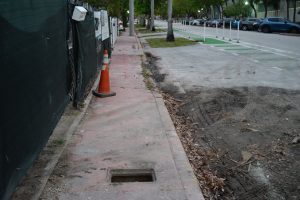 “Sine die,” the dropping of the handkerchief ceremony to signal the end of the legislative session in Florida, could not come soon enough this year for residents hoping for safer roads and highways.
“Sine die,” the dropping of the handkerchief ceremony to signal the end of the legislative session in Florida, could not come soon enough this year for residents hoping for safer roads and highways.
During the 2024 legislative session, which ran from January 9, 2024 to March 8, 2024, Republican legislators proposed a variety of bills that would insulate trucking companies, road contractors, engineers and other contractors from liability when they make Florida’s roadways more dangerous.
Commercial Vehicles
Penske Corporation, Inc., one of the largest trucking rental companies in the nation, backed legislation that would give vehicle owners, lessors, and operators immunity from liability when those vehicles were not equipped to meet industry safety standards. Florida is not the only state targeted for similar legislation.
Industry safety standards are developed from the practice of customary methods and conduct over time. In many instances, the standards are codified in statutes, regulations, and industry publications, while experts in various fields often testify based on their experience and knowledge. Evidence of violation of industry standards is admissible as non-conclusive evidence of negligence. St. Louis-San Francisco Railway Company v. White, 369 So.2d 1007 (Fla. 1st DCA 1979). See also: St. Louis-San Francisco Railway Company v. Burlison, 262 So.2d 280 (Fla. 1st DCA 1972); Clements v. Boca Aviation, Inc., 444 So.2d 597 (Fla. 4th DCA 1984); Nance v. Winn Dixie Stores, Inc., 436 So.2d 1075 (Fla. 3rd DCA 1983); Reese v. Seaboard Coast Line Railroad Company, 360 So.2d 27 (Fla. 4th DCA 1978).
 Florida Injury Attorney Blawg
Florida Injury Attorney Blawg








